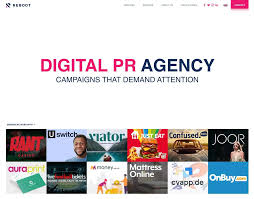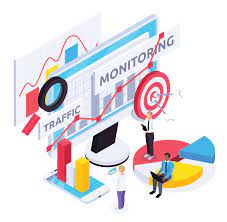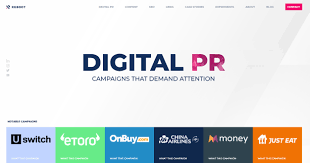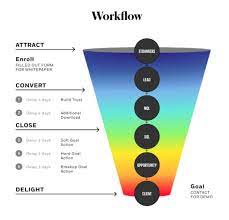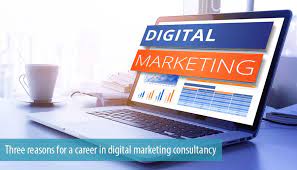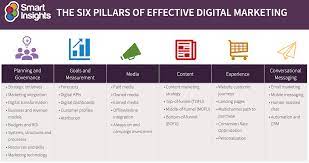Digital Marketing Communication Plan: A Blueprint for Success
In today’s digital age, having a well-defined and comprehensive digital marketing communication plan is crucial for businesses aiming to thrive in the online landscape. With the increasing reliance on digital platforms, it is essential to have a strategic approach that effectively reaches and engages target audiences. In this article, we will explore the key components of a successful digital marketing communication plan.
- Define Your Objectives: The first step in creating a digital marketing communication plan is to clearly define your objectives. What do you want to achieve through your digital marketing efforts? Whether it’s increasing brand awareness, driving website traffic, generating leads, or boosting sales, having specific and measurable goals will guide your entire strategy.
- Identify Your Target Audience: Understanding your target audience is vital for crafting tailored messages that resonate with them. Conduct thorough market research to identify their demographics, interests, preferences, and online behavior. This knowledge will help you create content that speaks directly to their needs and desires.
- Choose the Right Channels: With numerous digital channels available, it’s important to select the ones that align with your target audience and objectives. Whether it’s social media platforms like Facebook, Instagram, or LinkedIn; search engine optimization (SEO) strategies; email marketing; content marketing; or paid advertising options such as Google Ads or display ads – each channel offers unique opportunities to connect with your audience.
- Develop Compelling Content: Content lies at the heart of any successful digital marketing communication plan. Create high-quality content that educates, entertains, and engages your target audience across different channels. This can include blog posts, videos, infographics, podcasts or webinars – all designed to provide value and build trust with your audience.
- Implement SEO Strategies: Optimizing your website for search engines is essential for driving organic traffic and improving visibility in search results. Conduct keyword research to identify relevant keywords related to your industry and incorporate them into your website’s content. Additionally, focus on building quality backlinks to improve your website’s authority.
- Engage on Social Media: Social media platforms offer an excellent opportunity to connect with your audience on a personal level. Develop a social media strategy that includes regular posting, engaging with followers, responding to comments and messages, and utilizing paid advertising options to expand your reach.
- Monitor and Analyze: Regularly monitor the performance of your digital marketing efforts using tools like Google Analytics or social media insights. Analyze key metrics such as website traffic, engagement rates, conversion rates, and ROI. This data will help you identify what’s working well and areas that require improvement, allowing you to refine your strategy accordingly.
- Adapt and Evolve: The digital landscape is constantly evolving, so it’s crucial to stay updated with the latest trends and technologies. Continuously evaluate the effectiveness of your digital marketing communication plan and be willing to adapt as needed. Embrace new opportunities that arise in the digital space to stay ahead of the competition.
In conclusion, a well-crafted digital marketing communication plan is essential for businesses looking to succeed in today’s digital world. By defining clear objectives, understanding your target audience, choosing the right channels, creating compelling content, optimizing for search engines, engaging on social media platforms, monitoring performance, and adapting as needed – you can build a strong online presence that drives results for your business. Invest time and effort into developing a comprehensive plan that aligns with your goals and watch as your brand flourishes in the digital realm.
6 Key Advantages of a Digital Marketing Communication Plan in the UK
- Increased reach
- Cost effective
- Measurable results
- Targeted messages
- Flexible approach
- Improved customer relationships
Challenges of Digital Marketing Communication: 5 Cons to Consider
- It can be difficult to measure the success of digital marketing campaigns as there are no clear metrics for determining ROI.
- Digital marketing can be expensive, especially when using paid advertising channels such as Google Ads or Facebook Ads.
- Digital marketing requires a lot of time and resources to plan, create and implement an effective strategy.
- It can be difficult to reach target audiences through digital channels due to the vast array of options available for targeting users online.
- Digital marketing strategies are constantly evolving so it’s important to stay on top of the latest trends in order to remain competitive in the market place.
Increased reach
Increased Reach: Expanding Your Audience through Digital Marketing Communication Plans
One of the significant advantages of implementing a digital marketing communication plan is the ability to reach a much wider audience compared to traditional methods of marketing and advertising. In today’s interconnected world, where people spend a significant amount of time online, businesses can leverage digital channels to extend their reach and connect with potential customers globally.
Unlike traditional marketing methods that often have geographical limitations, digital marketing enables businesses to transcend boundaries and target audiences beyond their local area. With the right strategies in place, you can reach individuals who may have never come across your brand otherwise.
Digital marketing communication plans offer numerous avenues for expanding your reach. Social media platforms provide an opportunity to engage with users from different demographics and regions. By creating compelling content and utilizing targeted advertising, you can specifically tailor your messages to resonate with various segments of your target audience.
Search engine optimization (SEO) techniques allow you to improve your website’s visibility in search engine results pages, making it easier for potential customers to discover your business when searching for relevant keywords or phrases. This increased visibility can drive organic traffic from all corners of the globe.
Additionally, digital marketing communication plans often incorporate paid advertising options such as Google Ads or display ads. These platforms offer sophisticated targeting capabilities that enable you to narrow down your audience based on factors like age, location, interests, and more. By reaching out to specific segments within your target market, you can maximize the impact of your campaigns and increase the likelihood of converting leads into customers.
Moreover, digital marketing allows businesses to leverage content marketing strategies such as blogging or video creation. By producing valuable and shareable content that resonates with your target audience’s interests or pain points, you can attract visitors from various online channels. As users engage with and share your content, it has the potential to reach even more individuals organically through social media shares or search engine rankings.
In conclusion, a well-executed digital marketing communication plan offers businesses the opportunity to expand their reach exponentially. By harnessing the power of digital channels, businesses can connect with a much broader audience, both locally and globally. Whether through social media engagement, search engine optimization, targeted advertising, or content marketing efforts, digital marketing allows you to extend your brand’s reach and increase your chances of reaching and engaging potential customers who may have otherwise remained out of your traditional marketing scope.
Cost effective
Cost-effective: The Advantage of a Digital Marketing Communication Plan
In today’s competitive business landscape, cost-effectiveness is a key consideration for any marketing strategy. This is where a digital marketing communication plan shines, offering businesses the opportunity to reach their target market while saving money compared to traditional advertising methods.
One of the major advantages of digital marketing is its affordability. Compared to traditional forms of advertising such as print ads, TV commercials, or billboards, digital marketing channels often come at a fraction of the cost. This cost-effectiveness allows businesses, especially smaller ones with limited budgets, to allocate their resources more efficiently and get the most out of their marketing efforts.
Digital marketing offers various channels that can be tailored to fit different budgets. For instance, social media platforms provide options for both organic and paid advertising. With paid advertising on platforms like Facebook or Instagram, businesses can set specific budgets and target audiences based on demographics, interests, and behaviors. This targeted approach ensures that marketing spend is focused on reaching those who are most likely to engage with the brand.
Additionally, digital marketing allows for greater flexibility in budget allocation. Unlike traditional advertising where fixed costs are incurred regardless of results, digital campaigns can be adjusted in real-time based on performance metrics. Businesses have the ability to optimize campaigns by scaling up successful strategies or reallocating funds from underperforming ones. This agility ensures that every penny spent delivers maximum value and ROI.
Moreover, digital marketing offers advanced tracking and analytics tools that provide detailed insights into campaign performance. Businesses can monitor key metrics such as impressions, clicks, conversions, and engagement rates in real-time. This data-driven approach enables informed decision-making and allows businesses to continuously refine their strategies for better results.
Digital marketing’s cost-effectiveness extends beyond just ad spend. It also encompasses other aspects such as reduced printing costs for brochures or flyers since digital content can be easily created and distributed online. Additionally, email marketing eliminates the need for expensive postage and printing, making it a more economical option for reaching customers directly.
In conclusion, the cost-effectiveness of a digital marketing communication plan is a significant advantage for businesses. By leveraging the power of digital channels, businesses can save money while still effectively reaching their target market. The ability to allocate budgets efficiently, track performance in real-time, and make data-driven decisions ensures that every marketing pound is spent wisely. Embracing digital marketing not only offers cost savings but also opens up new opportunities for businesses to grow and thrive in the ever-evolving digital landscape.
Measurable results
Measurable Results: The Key Advantage of Digital Marketing Communication Plans
One of the key advantages of implementing a digital marketing communication plan is the ability to measure and track the results of your campaigns. Unlike traditional marketing methods, digital marketing provides robust analytics tools that offer valuable insights into the success or failure of your efforts. This data-driven approach allows businesses to make informed decisions about future campaigns, leading to improved efficiency and effectiveness.
With digital marketing communication plans, you have access to a wealth of analytics tools that provide detailed metrics and data on various aspects of your campaigns. From website traffic and engagement rates to conversion rates and ROI, these analytics tools give you a comprehensive view of how your campaigns are performing.
By tracking these metrics, you can identify which strategies are working well and which ones need adjustment. For example, if you notice that a particular social media platform is driving significant traffic to your website while another is not performing as expected, you can allocate more resources to the successful platform or modify your approach on the underperforming one.
The ability to measure results also enables businesses to set specific goals and track their progress towards achieving them. Whether it’s increasing brand awareness, generating leads, or driving sales, having measurable objectives allows for better evaluation and optimization of campaigns.
Additionally, being able to measure results helps in allocating budgets effectively. By analyzing the data provided by analytics tools, businesses can identify which channels or strategies are delivering the best return on investment (ROI). This knowledge allows for smarter budget allocation, ensuring that resources are directed towards initiatives that yield the highest impact.
Furthermore, measuring results enables businesses to conduct A/B testing and experiment with different approaches. By comparing different variations of an ad or campaign element, you can determine which version performs better in terms of engagement or conversions. This iterative process helps refine your strategies over time and maximizes the effectiveness of your digital marketing efforts.
In conclusion, the ability to measure results is a significant advantage of digital marketing communication plans. The availability of analytics tools empowers businesses to track the success or failure of their campaigns, make data-driven decisions, optimize their strategies, and allocate resources effectively. By leveraging these measurable results, businesses can continuously improve their digital marketing efforts and achieve greater success in reaching and engaging their target audience.
Targeted messages
Targeted Messages: The Power of Personalization in Digital Marketing Communication Plans
In the realm of digital marketing, one of the standout advantages of a well-executed communication plan is the ability to create targeted messages. This means tailoring your content and communications specifically to the needs and interests of your target market. By doing so, you can significantly increase the chances of engaging with your audience and fostering a deeper connection with your brand or product.
In traditional marketing methods, it was often challenging to reach a specific audience with precision. However, with digital marketing communication plans, businesses now have access to a wealth of data and tools that allow them to segment their audiences and deliver personalized messages.
By understanding your target market’s demographics, behaviours, preferences, and online activity, you can craft messages that resonate on a personal level. For example, if you are targeting young professionals interested in fitness, you can create content that speaks directly to their fitness goals, challenges they face in maintaining a healthy lifestyle while working long hours, or even provide tips for staying active during busy workdays.
When your audience feels that your messages are tailored specifically for them and address their unique needs or interests, they are more likely to engage with your brand. This increased engagement can lead to higher conversion rates, improved customer loyalty, and ultimately drive business growth.
Moreover, targeted messages allow for more effective use of resources. Instead of casting a wide net and hoping for the best outcome, you can focus your efforts on reaching those who are most likely to be interested in what you offer. This not only saves time and money but also maximizes the impact of your marketing efforts.
Digital marketing communication plans enable businesses to leverage various channels such as social media platforms or email marketing campaigns to deliver these targeted messages directly to their intended audience. By utilizing these channels strategically and considering factors such as timing and frequency of communication, businesses can further enhance engagement levels.
It’s important to note that creating targeted messages requires a deep understanding of your audience. Conducting market research, analyzing data, and continuously monitoring and evaluating your campaigns will help you refine your messaging strategy over time. This ongoing process ensures that you stay in tune with your audience’s evolving needs and preferences.
In conclusion, the ability to create targeted messages is a significant advantage of implementing a digital marketing communication plan. By tailoring your content specifically to the needs and interests of your target market, you can foster stronger connections with your audience, increase engagement levels, and drive business growth. Embrace the power of personalization in your digital marketing efforts, and watch as your brand flourishes in the online landscape.
Flexible approach
Flexible Approach: Harnessing the Power of Digital Marketing Communication Plans
In the ever-changing landscape of marketing, businesses need to be nimble and adaptable to stay ahead. One of the standout advantages of a digital marketing communication plan is its inherent flexibility. This flexibility allows businesses to quickly change and adjust their campaigns to achieve optimal results, giving them greater control over how their messages are received by customers.
Unlike traditional marketing methods, digital marketing offers the ability to make real-time adjustments based on data and insights. With the right tools and analytics in place, businesses can monitor campaign performance, identify trends, and react swiftly to optimize their strategies.
One significant aspect of this flexibility lies in the ability to target specific audiences with tailored messages. Digital marketing communication plans allow businesses to segment their target market based on demographics, interests, or online behavior. By doing so, they can create personalized content that resonates with each audience segment. If a particular message or campaign isn’t performing as expected, adjustments can be made swiftly to improve engagement and conversion rates.
Furthermore, digital marketing platforms provide a wealth of options for testing and experimentation. A flexible approach enables businesses to try different ad formats, messaging styles, or even entirely new channels without committing significant resources upfront. By continuously testing and refining campaigns based on data-driven insights, businesses can optimize their efforts for maximum impact.
The ability to adapt quickly also proves invaluable when responding to market changes or customer feedback. With a digital marketing communication plan in place, businesses can swiftly adjust their strategies in response to shifts in consumer preferences or emerging trends. This agility ensures that they remain relevant and continue meeting customer expectations in a rapidly evolving marketplace.
In addition to being responsive to external factors, a flexible approach within a digital marketing communication plan allows for internal adjustments as well. Businesses can easily allocate resources differently across various campaigns or channels based on performance indicators. This level of control empowers them to make informed decisions that align with their goals and budget.
In conclusion, the flexibility offered by a digital marketing communication plan is a game-changer for businesses. The ability to quickly change and adjust campaigns based on real-time data allows for greater control over how messages are received by customers. This adaptability enables businesses to optimize their strategies, target specific audiences with personalized content, experiment with new approaches, and respond swiftly to market changes. By harnessing the power of flexibility in digital marketing, businesses can stay agile in an ever-evolving landscape and achieve the best possible results from their campaigns.
Improved customer relationships
Improved Customer Relationships: Building Trust and Loyalty through Digital Marketing Communication
In the digital era, businesses have a powerful tool at their disposal to strengthen customer relationships – the digital marketing communication plan. By leveraging digital channels, businesses can engage with customers in meaningful ways, leading to improved trust, loyalty, and long-term relationships.
One of the key advantages of a digital marketing communication plan is its ability to create personalized and targeted interactions with customers. Through social media platforms, email marketing campaigns, and other digital touchpoints, businesses can deliver relevant content and offers directly to their customers. This level of personalization helps customers feel valued and understood, leading to a stronger emotional connection with the brand.
Furthermore, digital channels provide opportunities for ongoing engagement and two-way communication. Customers can easily reach out to businesses through social media comments, direct messages, or email inquiries. Prompt responses and genuine interactions demonstrate that the business cares about its customers’ needs and concerns. This responsiveness builds trust and shows that the business is committed to providing excellent customer service.
Digital marketing communication plans also allow businesses to gather valuable customer feedback. Through surveys or social media polls, businesses can gain insights into customer preferences, opinions, and pain points. This information can then be used to tailor products or services to better meet customer needs. By actively listening to customers’ voices and implementing changes based on their feedback, businesses foster a sense of being heard and valued.
Another advantage of digital marketing communication plans is their ability to provide ongoing support and assistance. Through chatbots or live chat features on websites or social media platforms, businesses can offer immediate help to customers who have questions or concerns. This accessibility makes customers feel supported throughout their journey with the brand.
By engaging with customers through digital channels consistently over time, businesses can build lasting relationships based on trust and loyalty. When customers feel connected to a brand on an emotional level and perceive value in its offerings, they are more likely to become repeat customers and advocates for the brand. Positive experiences shared through online reviews, social media posts, or word-of-mouth recommendations can further enhance the brand’s reputation and attract new customers.
In conclusion, a well-executed digital marketing communication plan can significantly improve customer relationships. By leveraging digital channels to deliver personalized content, engage in two-way communication, gather feedback, provide ongoing support, and create positive experiences, businesses can build trust, loyalty, and long-term relationships with their customers. Embracing the power of digital marketing communication is not only a smart business strategy but also a way to foster meaningful connections that drive success in today’s digital landscape.
It can be difficult to measure the success of digital marketing campaigns as there are no clear metrics for determining ROI.
The Conundrum of Measuring ROI in Digital Marketing Communication Plans
While digital marketing communication plans offer numerous benefits, one notable challenge lies in accurately measuring the success of campaigns. Unlike traditional marketing methods, where tangible metrics such as sales figures or customer response rates can be easily tracked, the digital landscape presents a conundrum when it comes to determining return on investment (ROI).
One of the main reasons for this difficulty is the sheer volume of data generated by digital marketing campaigns. With multiple channels and platforms involved, each producing its own set of metrics, it can be overwhelming to pinpoint which data points are truly indicative of success. Additionally, the lack of standardized measurement practices across industries further adds to the complexity.
Another hurdle is the time factor. Digital marketing campaigns often involve long-term strategies aimed at building brand awareness and engagement over time. Unlike immediate sales-driven campaigns, these long-term efforts require patience and continuous monitoring to assess their impact accurately.
Furthermore, attribution poses a significant challenge in measuring ROI. In an interconnected digital ecosystem where consumers interact with multiple touchpoints before making a purchase or taking any desired action, assigning credit to specific channels or tactics becomes intricate. It becomes difficult to determine which touchpoint ultimately influenced the conversion.
However, despite these challenges, there are ways to mitigate this conundrum and gain insights into ROI. Firstly, setting clear objectives and defining key performance indicators (KPIs) aligned with these objectives is crucial. By identifying what you want to achieve and establishing relevant metrics for measurement upfront, you can focus your efforts on tracking specific outcomes that matter most to your business.
Secondly, implementing robust analytics tools can help gather and analyze data effectively. Platforms like Google Analytics provide valuable insights into website traffic, user behavior, conversion rates, and more. Utilizing advanced tracking features such as UTM parameters or custom event tracking enables better attribution analysis.
Thirdly, employing data visualization techniques can aid in presenting complex data in a more understandable and actionable format. Creating dashboards or reports that consolidate relevant metrics and present them in a visually appealing manner allows for easier interpretation and decision-making.
Lastly, conducting A/B testing and experimentation can provide valuable insights into campaign performance. By testing different variables such as ad copy, visuals, or landing page designs, you can compare results and identify which elements drive better outcomes.
In conclusion, while measuring ROI in digital marketing communication plans may present challenges due to the absence of clear-cut metrics, it is not an insurmountable obstacle. By setting clear objectives, utilizing analytics tools effectively, employing data visualization techniques, and conducting experiments, businesses can gain valuable insights into the success of their digital marketing campaigns. It requires a strategic approach that focuses on relevant metrics aligned with business goals to overcome this conundrum and make informed decisions that drive growth in the digital realm.
Digital marketing can be expensive, especially when using paid advertising channels such as Google Ads or Facebook Ads.
The Costly Conundrum of Digital Marketing Communication Plans
In the realm of digital marketing communication plans, there exists a con that often raises concerns for businesses – the potential for high expenses. This is particularly true when utilizing paid advertising channels such as Google Ads or Facebook Ads. While digital marketing offers immense opportunities, it’s important to consider the financial implications associated with certain strategies.
Paid advertising channels can be incredibly effective in reaching a wider audience and driving targeted traffic to your website. However, they often come with a price tag. Running ads on platforms like Google Ads or Facebook Ads requires setting budgets, bidding for keywords or placements, and paying per click or impression. Costs can quickly add up, especially if you’re targeting competitive keywords or aiming for extensive reach.
To mitigate the expense, it’s crucial to approach paid advertising with a well-defined strategy. Conduct thorough research to identify the most relevant keywords and audience segments that align with your objectives. Refine your targeting options to reach the right people at the right time, maximizing the return on your investment.
Another cost-saving approach is to focus on organic methods like search engine optimization (SEO) and content marketing. By optimizing your website for search engines and creating valuable content that resonates with your target audience, you can drive organic traffic without relying solely on paid advertising. While SEO efforts require time and effort upfront, they can provide long-term benefits by improving your website’s visibility in search results.
Additionally, consider diversifying your digital marketing channels beyond paid advertising. Explore social media platforms organically by creating engaging content and building an active community around your brand. Leverage email marketing campaigns to nurture leads and build customer loyalty. Participate in industry forums or collaborate with influencers to expand your reach organically without solely relying on costly ad campaigns.
It’s worth noting that while digital marketing can be expensive, it also offers measurable results that allow you to track the return on investment (ROI). Monitor key metrics such as conversion rates, cost per acquisition, and customer lifetime value to assess the effectiveness of your campaigns. This data-driven approach enables you to make informed decisions and optimize your marketing efforts for better results.
In conclusion, the cost factor associated with digital marketing communication plans, particularly when using paid advertising channels, should be carefully considered. However, with a strategic approach that combines both paid and organic methods, businesses can strike a balance between costs and results. By investing in thorough research, optimization techniques, and diversified marketing channels, you can minimize expenses while maximizing the impact of your digital marketing efforts.
Digital marketing requires a lot of time and resources to plan, create and implement an effective strategy.
The Demands of Digital Marketing: Time and Resources
While digital marketing communication plans offer numerous benefits for businesses, it’s important to acknowledge the challenges that come with implementing an effective strategy. One significant con is the considerable investment of time and resources required throughout the planning, creation, and implementation stages.
Digital marketing encompasses a wide range of activities, including market research, content creation, social media management, search engine optimization (SEO), paid advertising campaigns, and performance analysis. Each of these elements demands careful attention and dedication to yield positive results.
Planning a digital marketing strategy involves conducting thorough market research to understand target audiences, competitors, and industry trends. This process requires time to gather data, analyze insights, and develop a well-informed plan that aligns with business goals.
Creating compelling content is another time-consuming aspect of digital marketing. Whether it’s writing blog posts, designing infographics, producing videos or podcasts – each piece requires careful thought and effort to ensure it resonates with the target audience. Additionally, maintaining consistency in content production can be challenging without a dedicated team or sufficient resources.
Implementing an effective digital marketing strategy also demands ongoing monitoring and optimization. Regularly analyzing key metrics such as website traffic, engagement rates, conversion rates, and ROI is crucial to identify areas for improvement. This process requires continuous monitoring of performance data and making adjustments accordingly.
Furthermore, staying up-to-date with the ever-evolving digital landscape requires ongoing learning and adaptation. New technologies emerge constantly; algorithms change; consumer preferences shift – all of which demand additional time investment to stay ahead of the curve.
While it is true that digital marketing communication plans require significant time and resources, it’s important to view this as an investment rather than a drawback. The potential benefits that can be achieved through effective digital marketing strategies often outweigh the costs involved.
To mitigate these challenges, businesses can consider outsourcing certain aspects of their digital marketing efforts or hiring dedicated professionals who possess the necessary expertise. This allows businesses to focus on their core activities while benefiting from the knowledge and experience of digital marketing specialists.
In conclusion, the time and resource demands of digital marketing communication plans should not discourage businesses from pursuing these strategies. Instead, it should be seen as an opportunity to invest in building a strong online presence and connecting with target audiences. By dedicating the necessary time and resources, businesses can reap the rewards of an effective digital marketing strategy that drives growth and success in the digital realm.
It can be difficult to reach target audiences through digital channels due to the vast array of options available for targeting users online.
The Challenge of Reaching Target Audiences in Digital Marketing Communication Plans
In today’s digital landscape, one of the significant challenges businesses face when implementing a digital marketing communication plan is effectively reaching their target audiences. With the vast array of options available for targeting users online, it can be difficult to navigate through the noise and connect with the right people. Let’s explore this con in more detail.
The abundance of digital channels, platforms, and tools offers businesses numerous opportunities to reach their target audiences. However, this abundance also presents a challenge. With so many options available, it becomes crucial for businesses to strategically select the most relevant channels that align with their audience’s preferences and behaviours.
One issue businesses encounter is the fragmentation of online audiences across various platforms and channels. Different demographics tend to gravitate towards different platforms – from social media networks like Facebook and Instagram to professional networking sites like LinkedIn. This fragmentation makes it challenging to reach all segments of your target audience through a single channel.
Additionally, within each platform, there are numerous targeting options available based on factors such as demographics, interests, behaviours, and location. While this level of granularity can be beneficial for precise targeting, it can also be overwhelming for businesses trying to narrow down their focus.
Moreover, consumers today are becoming increasingly adept at filtering out irrelevant or intrusive marketing messages. They have developed ad-blindness or use ad-blockers to avoid being bombarded with unwanted advertisements. This poses an additional obstacle for businesses trying to cut through the clutter and capture their audience’s attention.
To overcome these challenges, businesses need to invest time in understanding their target audience thoroughly. Conducting comprehensive market research will help identify the channels and platforms where your audience is most active. By gaining insights into their preferences and behaviours online, you can tailor your marketing messages accordingly.
Another strategy is to leverage data analytics tools that provide valuable insights into user behaviour on various digital channels. By analysing this data regularly, you can refine your targeting strategies and optimize your communication plan to ensure it resonates with your audience.
Collaboration with digital marketing experts can also be beneficial. These professionals have the expertise and experience to navigate the ever-changing digital landscape, staying up-to-date with the latest trends and best practices. They can help businesses identify the most effective channels and tactics to reach their target audiences successfully.
While reaching target audiences through digital channels may present challenges, businesses that invest time in understanding their audience, leveraging data analytics, and seeking expert guidance can overcome these obstacles. By adapting their strategies, refining their targeting approaches, and providing valuable content, businesses can increase their chances of connecting with their desired audience effectively.
Digital marketing strategies are constantly evolving so it’s important to stay on top of the latest trends in order to remain competitive in the market place.
Staying Ahead in the Digital Marketing Race: The Challenge of Constantly Evolving Strategies
In today’s fast-paced digital world, one of the challenges businesses face with their digital marketing communication plan is the ever-changing landscape of strategies and trends. With technology advancing at a rapid pace and consumer preferences shifting, it is crucial for businesses to stay on top of the latest trends to remain competitive in the marketplace.
One of the key aspects of digital marketing is its dynamic nature. What worked yesterday may not work today, and what works today may become obsolete tomorrow. This constant evolution can be both exciting and daunting for businesses trying to navigate the digital realm.
The rapid changes in technology and consumer behavior require businesses to adapt their strategies accordingly. New platforms emerge, algorithms change, and consumer preferences shift. It is essential for businesses to keep a finger on the pulse of these changes to ensure their digital marketing efforts are effective.
Staying on top of the latest trends allows businesses to anticipate shifts in consumer behavior and adjust their strategies proactively. By embracing new technologies and platforms, they can reach their target audience more effectively and engage with them in meaningful ways.
However, this constant evolution also presents a conundrum. It requires businesses to invest time, resources, and effort into staying updated with the latest trends. This means continuously learning about new tools, techniques, and platforms that emerge regularly.
Moreover, keeping up with these changes requires ongoing monitoring and analysis of data. Businesses need to track key metrics, analyze results, and make data-driven decisions. This can be time-consuming but is essential for refining strategies and maximizing return on investment.
The challenge lies in finding a balance between staying ahead of the curve without getting overwhelmed by every new trend that emerges. It’s important not to chase every shiny object but instead focus on those trends that align with your business objectives and target audience.
To tackle this challenge effectively, businesses can consider partnering with digital marketing experts or agencies. These professionals stay updated with the latest trends and have the expertise to guide businesses in implementing strategies that yield results.
In conclusion, the ever-evolving nature of digital marketing strategies presents both opportunities and challenges for businesses. While staying on top of the latest trends is crucial for remaining competitive, it requires ongoing effort and adaptation. By finding the right balance, businesses can leverage new technologies and platforms to their advantage, ensuring their digital marketing communication plan remains effective in a dynamic marketplace.



